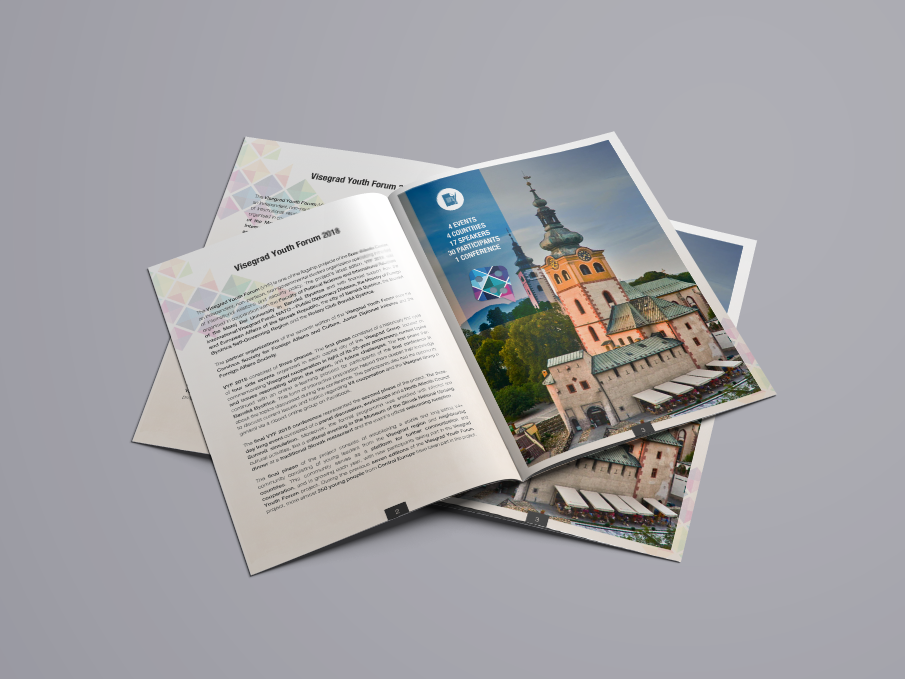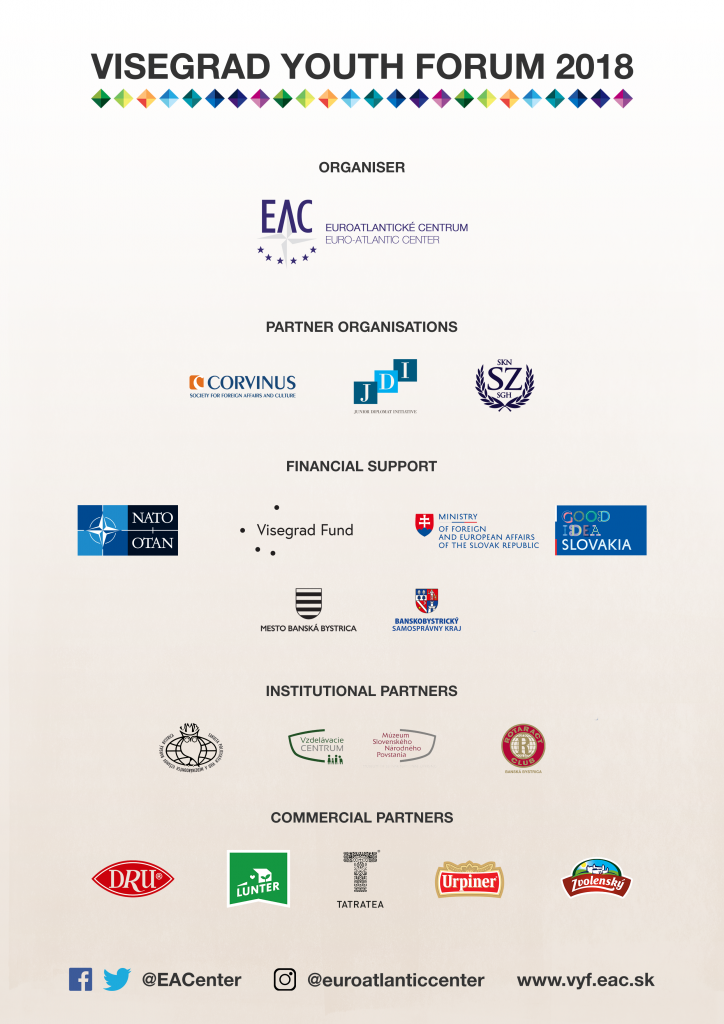Banská Bystrice once again became the venue of the Visegrad Youth Forum (VYF), hosting its seventh edition this year. VYF 2018 took place between December 5 and December 7, uniting young students and academics from the Czech Republic, Poland, Hungary and Slovakia in various debates and discussions.
For the first time in project history, side events in each respective V4 capital were organized prior to the final conference in cooperation with the project’s partner organizations. As has become tradition during previous editions of the project, VYF 2018 culminated in a North Atlantic Council Summit simulation in the Center of Crisis Management (CEKR) at the Faculty of Political Science and International Relations of the Matej Bel University, during which the participants, set in the role of NATO member country delegates, were tasked to reach a consensus on the topic of PESCO and strengthening common European security policy. Aside from an intensive, two-part workshop focusing on the future course of the V4, the program of this year’s edition of the Visegrad Youth Forum included a panel discussion on the topic of the current political climate in the Visegrad region and prognoses of its future development, taking into account the membership of V4 states in Euro-Atlantic structures titled ‘Going backwards? V4 at a crossroads’.
The panel was introduced by a keynote speech by Marek Lenč, assistant professor at the Department of International Relations and Diplomacy at the Faculty of Political Science and International Relations, Matej Bel University. Speaking at the discussion were András Máté Lázár, the National Visegrad Coordinator of Hungary at the Department for Visegrad Cooperation and Central Europe of the Ministry of Foreign Affairs and Trade of Hungary, Marko Salíni, Secretary of the European Affairs Section of theMinistry of Foreign and European Affairs of the Slovak Republic, both representing the governmental sphere, and Jakub Groszkowski, Head of the Central European Department at the Centre for Eastern Studies in Warsaw, and Jana Juzová, Research Fellow at the EUROPEUM Institute for European Policy, in Prague, representing the non-governmental sphere.
This year’s edition of the Visegrad Youth Forum included a cultural evening with a rich cultural program at Museum of the Slovak National Uprising, during which the participants presented their home countries and their diverse cultures via interactive presentations. Afterwards, the participants got to taste Slovak culture, quite literally, as they had dinner at a traditional Slovak restaurant.
The Visegrad Youth Forum is a project organized by the Euro-Atlantic Center in cooperation with the Faculty of Political Science and International Relations of the Matej Bel University in Banská Bystrica. The seventh edition of the Visegrad Youth Forum is financially supported by the International Visegrad Fund, NATO – Public Diplomacy Division, the Ministry of Foreign and European Affairs of the Slovak Republic, the city of Banská Bystrica, the Banská Bystrica Self-Governing Region and the Rotary Club Banská Bystrica.




